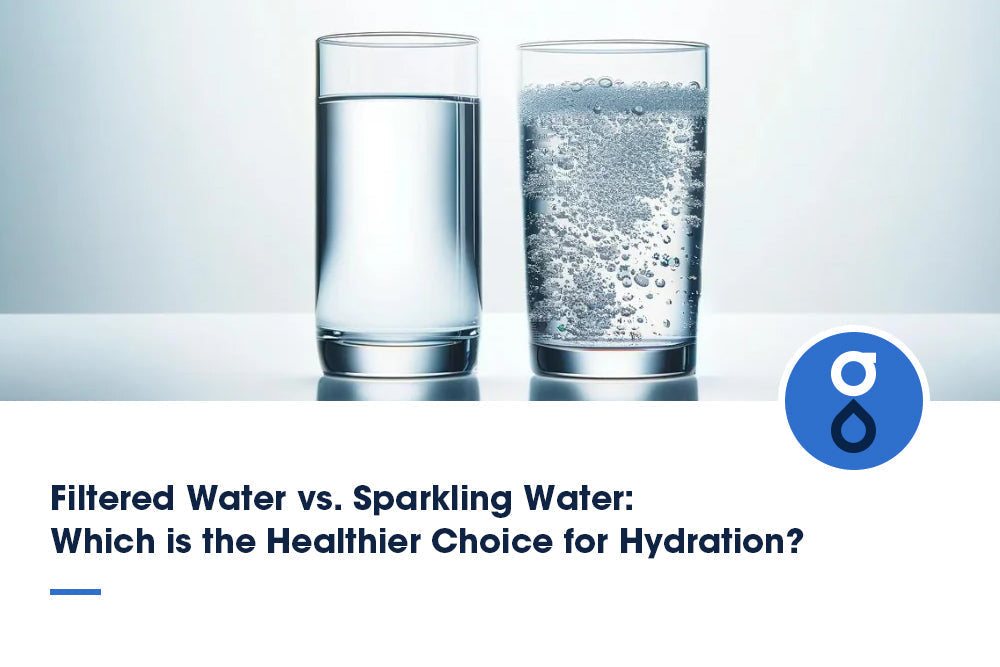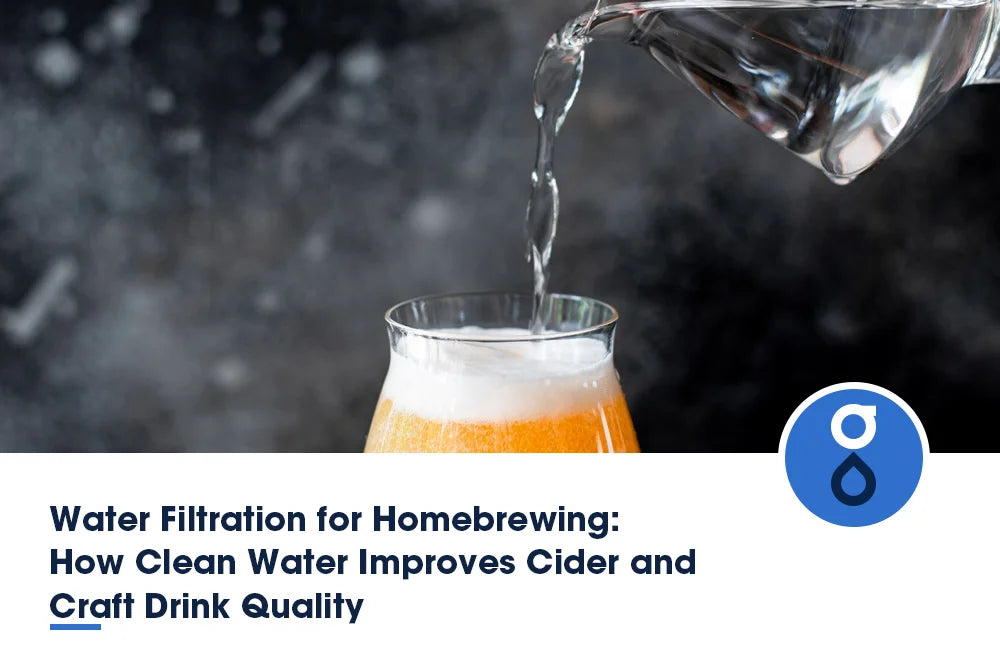Table of Contents:
Understanding allergic rhinitis
How does filtered water affect allergic rhinitis?
Contaminants in drinking water that may affect allergic rhinitis
Scientific evidence: does filtered water help allergic rhinitis?
Other practical tips for managing allergic rhinitis
Conclusion
Allergic rhinitis, commonly known as hay fever, is a widespread condition affecting millions worldwide. The symptoms can be uncomfortable and disruptive, from sneezing fits and itchy eyes to congestion and a runny nose.
While traditional treatments like antihistamines and nasal sprays are commonly used to alleviate these symptoms, filtered water may be another simple remedy worth considering. This blog will explore the potential link between filtered water and allergic rhinitis and how drinking cleaner water might help manage allergy symptoms.
Understanding allergic rhinitis

Allergic rhinitis occurs when the body’s immune system overreacts to allergens, such as pollen, dust mites, mold spores, or pet dander. The immune system produces histamine and other chemicals in response to these allergens, which leads to inflammation in the nasal passages and other parts of the respiratory system. This inflammation causes the hallmark symptoms of allergic rhinitis: sneezing, nasal congestion, itchy or watery eyes, and a runny nose.
While many people manage these symptoms with over-the-counter medications like antihistamines or nasal corticosteroids, some individuals continue to experience persistent discomfort, especially during allergy season. Finding ways to reduce inflammation and minimize exposure to triggers is essential for managing the condition.
How does filtered water affect allergic rhinitis?
Water is essential for overall health, but not all water is created equal. Contaminated tap water can introduce chemicals and pollutants that may negatively affect the immune system, respiratory function, and general well-being. Drinking filtered water offers a potential solution by removing harmful contaminants from your water supply and providing you with cleaner, healthier hydration.
In theory, filtered water could help alleviate allergy symptoms in a couple of key ways:
- Reducing chemical exposure: Many municipal water systems use chlorine and chloramine to disinfect the water supply. While effective at killing bacteria, these chemicals can irritate the nasal passages and worsen symptoms of allergic rhinitis. By removing these chemicals, a water filter can help reduce irritation in the respiratory system.
- Supporting immune function: Contaminants such as heavy metals (lead, mercury), pesticides, and other harmful substances found in unfiltered water can strain the immune system. A weakened immune system can lead to more severe allergic reactions. Filtering out these harmful substances could relieve allergy sufferers by supporting the body’s natural defense mechanisms.
- Hydration and healthy mucous membranes: Staying well-hydrated is crucial for maintaining healthy mucous membranes in the nasal passages and throat. When you’re dehydrated, the mucus in your airways can become thick and sticky, making it harder for your body to clear allergens and irritants. Drinking filtered water helps keep your mucous membranes hydrated and functioning properly, which can reduce the severity of allergic reactions.
Contaminants in drinking water that may affect allergic rhinitis

- Chlorine and chloramine: These chemicals are commonly used to disinfect water and kill bacteria, but they can irritate the respiratory system, worsening allergic rhinitis symptoms. Chlorine is known to dry out nasal passages, leading to further irritation and discomfort.
- Heavy metals: Contaminants like lead, mercury, and arsenic are often present in trace amounts in tap water, especially in older pipes. Long-term exposure to these metals has been linked to weakened immune function and inflammation, both of which can exacerbate allergic reactions.
- Pesticides and herbicides: Runoff from agricultural fields can contaminate water sources with harmful chemicals like pesticides and herbicides. These chemicals can disrupt the immune system, increasing sensitivity to allergens and other environmental triggers.
- Microorganisms: While modern water treatment processes aim to eliminate harmful bacteria and viruses, unfiltered water can still contain microorganisms that might trigger immune responses in sensitive individuals.
Scientific evidence: does filtered water help allergic rhinitis?
While there is limited direct research on the relationship between filtered water and allergic rhinitis, studies have shown that improving water quality can support immune function and reduce inflammation. Research has also demonstrated that exposure to contaminants like chlorine and heavy metals can compromise respiratory health and increase allergic sensitivities.
However, it’s important to note that filtered water alone is unlikely to cure allergic rhinitis. It should be seen as part of an overall strategy for managing allergies, including avoiding known allergens, using medications as needed, and maintaining a healthy lifestyle.
Other practical tips for managing allergic rhinitis

While filtered water may offer some benefits, it’s essential to take a holistic approach to managing allergic rhinitis. Here are some additional tips:
- Avoid allergens: Identify and limit your exposure to common allergens like pollen, pet dander, and dust mites. Keep windows closed during high pollen seasons and use high-efficiency particulate air (HEPA) filters in your home.
- Use nasal irrigation: Rinsing your nasal passages with a saline solution can help clear out allergens and reduce inflammation.
- Take medications: Antihistamines, decongestants, and corticosteroids are effective treatments for allergic rhinitis. Consult your healthcare provider for the best options.
- Invest in air purifiers: Air purifiers with HEPA filters can help remove allergens from the air in your home, further reducing your exposure.
Conclusion
While drinking filtered water alone may not eliminate the symptoms of allergic rhinitis, it can certainly help alleviate them. Filtered water could be a valuable tool in your allergy management strategy by reducing exposure to harmful chemicals, promoting hydration, and supporting immune function. Pair it with other preventive measures such as allergen avoidance, medication, and a healthy lifestyle to maximize its benefits.
If you're struggling with allergy symptoms, consider the quality of the water you're drinking. Investing in a good brand water filtration system like Glacier Fresh could be a simple yet effective step toward managing your allergies and improving your overall health.
















